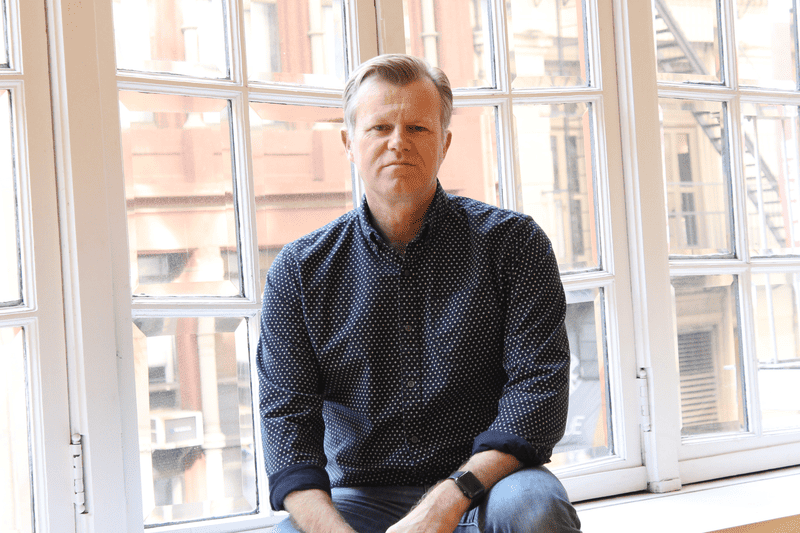MIT Media Lab’s Michael Casey, co-author ofThe Truth Machine: The Blockchain and the Future of Everything, talks withGlobal Financeabout how the new technology could change business—and how business leaders might need to change their thinking to take advantage of it.

Global Finance: In what ways do business leaders need to adjust their thinking to take advantage of blockchain?
Michael Casey: [Executives] think that monopoly power is the path to wealth, so they focus on gaining as much market share as possible. To them, the sharing economy is problematic, because it means you gain power by sharing access to decentralized pools [of consumers]. But there are huge cost efficiencies to be gained by solving the trust problem.
GF: Why do we even need blockchain? Isn’t today’s internet adequate?
Casey: The internet we built is a problematic system. What was built was a physical infrastructure. What we’re building now is a social infrastructure, and anything social is more complex than anything built in a garage. The original sin of the internet is that, although it’s a decent framework for disseminating data, it doesn’t do as well at value transfers. This is blockchain’s big new step.
This is an enabling technology which is much more efficient than we are at making resource decisions. Self-driving cars will figure out how to best deal with congestion. Say you need to go to the hospital in a hurry and you want that driver ahead of you to move. A smart contract can pay that person to pull over. This transaction is enabled by a decentralized trust mechanism. You can’t put a bank in the middle.
[Blockchain’s database-management system] is creating a real cloud which, up to now, has just been other companies’ servers. We can now be paid for use of our excess computing power via the sharing economy.
GF: Why are the Walmarts of the world looking at blockchain now?
Casey: There’s enormous value to be had from a federated blockchain. It applies to supply chains in a very real way. Right now, there’s a cost of trust—it’s hidden, but it’s huge. There are multiple entities with the same goal [to sell and resell the same goods] who don’t trust each other, and this lack of trust requires reconciliation of ledgers. But if there’s one immutable ledger hosted on multiple nodes, you don’t have that problem.
Record keeping is the means by which we establish a set of facts. Right now [we are experiencing] a crisis in the need to trust intermediaries. The blockchain eliminates the need for trust. Arriving at consensus around economic activity is really quite liberating.
GF: Is all this going to chip away at national treasuries and central banks?
Casey: Yes. It’s not going to happen tomorrow. It’ll take a while. But the [typical] nation-state doesn’t know what to do with the internet. As for bitcoin, people hoard it and you don’t want a currency that’s being hoarded because it doesn’t circulate. I don’t think bitcoin will ever be a global currency to buy a cup of coffee with. But that’s a design feature. Its potential is as a reserve asset.
GF: Isn’t there a lot of risk involved in putting your company’s data on the blockchain? What if data is entered incorrectly?
Casey: We call it the “last-mile problem,” or “GIGO” for “garbage in, garbage out.” Even if we have greater confidence in the input from automated sources, it’ll never be perfect. But we shouldn’t be saying, “Why not give up, because it’s impossible [to be perfect]?” And even though [a blockchain ledger] is immutable and you can’t erase the data, you can always reverse the transaction. And the architecture of blockchain is less vulnerable to hacking. It’s a much more secure method than a centralized honeypot of data.
Potentially, you could create a pool of collusion. That hasn’t happened yet, maybe because there are much broader social aspects [to cryptocurrency]. There are very strong incentives not to do undermine a blockchain’s immutability. A lot of vested interest would be destroyed. I believe in the wisdom of the crowd—it inherently produces better results.
GF: We’ve seen reports stating that bitcoin mining requires more electricity over the course of a year than it takes to power any of 20 European countries. How do you justify the expense and environmental impact?
Casey: I don’t want to diminish the fact that it’s inefficient. All they do is “hash”—look for a number. You don’t get proof-of-work unless it’s a pointless waste of energy. If we stick with fossil fuels, we’d destroy the planet, so bitcoin miners sit where electricity is cheapest and renewable.
GF: What is your view of initial coin offerings (ICOs), the blockchain economy’s most notable source of funding?
Casey: It’s full of charlatans. There are lots of scams. I’m not a fan of most ICOs, with their flimsy white papers and crazy ideas. An ICO, ideally, is a way to seed a network that has a reason to require a token to access and is seeking as broad a distribution as possible.



